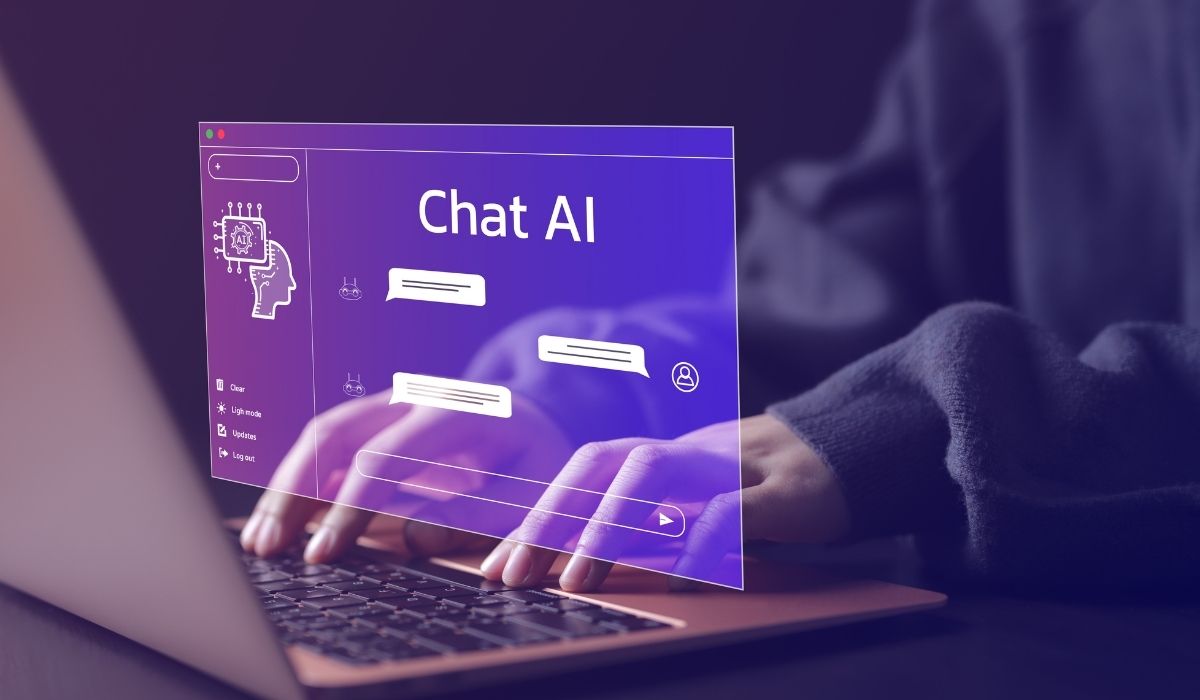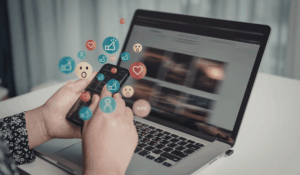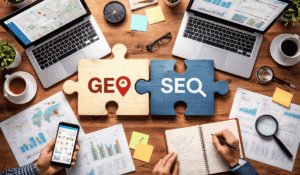The digital marketing landscape is evolving at an unprecedented pace, with artificial intelligence (AI) now at the forefront of this transformation.
As we step into 2025, businesses that fail to leverage AI in Digital Marketing risk falling behind their competition.
Whether it’s automating customer interactions, enhancing personalization, or optimizing ad campaigns, AI is reshaping how brands connect with their audiences.
In this article, we explore the power of AI in Digital Marketing, the tools and strategies you should adopt, and how to future-proof your business in an increasingly intelligent online ecosystem.
The Rise of AI in Digital Marketing
Over the last decade, digital marketing has seen seismic shifts.
Traditional methods are being replaced by data-driven, intelligent systems that learn and adapt with every interaction.
AI’s integration into Digital Marketing is not just a trend—it’s a revolution.
From Search Engine Optimization (SEO) and Pay per Click (PPC) advertising to social media management and content creation, AI is making every aspect of marketing more efficient, scalable, and precise.
Why AI is a Game Changer
1. Hyper-Personalization at Scale
Consumers in 2025 expect personalized experiences.
AI makes this possible by analyzing massive datasets to understand user behavior, preferences, and purchase history.
It then uses that information to deliver tailored messages, offers, and content.
For instance, email marketing tools powered by AI can segment audiences automatically and send hyper-relevant messages based on time, behavior, and predicted needs.
2. Smarter Search Engine Optimization
Search Engine Optimization is more complex than ever, with Google’s algorithms using AI like RankBrain to understand search intent.
AI tools now help marketers analyze SERP trends, identify keyword opportunities, and optimize content with greater precision.
Platforms like Surfer SEO or Clearscope use machine learning to suggest real-time improvements that align with top-ranking pages, making SEO more data-driven and effective.
3. Predictive Analytics for Campaign Success
Predictive analytics, powered by AI, allows marketers to forecast campaign outcomes before they even launch.
By analyzing historical data, AI can suggest the best times to post, the most engaging content types, and even predict customer churn.
These insights enable marketers to make data-informed decisions, reduce wasteful spending, and allocate resources where they’re most likely to yield ROI.
AI Tools Dominating Digital Marketing in 2025
Chatbots & Virtual Assistants

Gone are the days of clunky, robotic responses.
AI chatbots are now intelligent, capable of understanding context, emotions, and providing real-time support across websites, social media, and even voice assistants.
These tools are indispensable for lead generation, customer service, and nurturing prospects 24/7.
AI in Pay Per Click Advertising
Pay per Click campaigns require constant tweaking to ensure high performance.
AI tools now automate much of this process—analyzing which keywords convert best, adjusting bids in real-time, and even generating ad creatives.
Google Ads and Meta Ads platforms now offer AI-powered tools that improve targeting accuracy, ad performance, and cost-efficiency.
Content Generation & Enhancement
Tools like ChatGPT, Jasper, and Copy.ai are revolutionizing how we create content.
While human creativity is irreplaceable, AI enhances it by suggesting titles, refining tone, or even drafting entire articles based on inputs and audience analysis.
This makes content creation faster and more aligned with SEO goals and user expectations.
How to Stay Ahead in 2025 with AI in Digital Marketing
1. Invest in AI-Driven Platforms
Start by integrating AI tools into your current marketing stack.
Look for CRM systems with AI capabilities, marketing automation platforms like HubSpot or ActiveCampaign, and analytics tools that offer predictive insights.
AI integration doesn’t mean a full overhaul—it means enhancement.
Even small steps can lead to significant gains.
2. Focus on Customer Data
AI is only as good as the data it processes.
Make data collection a priority—track user behavior on websites, monitor social interactions, and invest in tools that consolidate data across platforms.
With clean and organized data, AI can generate accurate predictions, recommend better strategies, and personalize experiences that boost engagement and conversion.
3. Enhance SEO with AI Insights
Stay competitive in Search Engine Optimization by using AI tools to analyze competitors, discover untapped keywords, and fine-tune your content strategy.
AI platforms like SEMrush, Ahrefs, and Moz now incorporate machine learning to deliver insights that were previously impossible to access manually.
4. Automate Pay Per Click Campaigns
Take full advantage of AI features in PPC advertising.
Use automation to set rules, manage budgets, and improve bidding strategies.
AI can identify when and where your audience is most likely to convert, ensuring every dollar spent delivers maximum return.
AI also helps generate better ad creatives, testing variations to see which ones resonate most with different segments of your audience.
Real-World Impact: Success Stories of AI in Digital Marketing
Netflix: AI-Powered Personalization
Netflix uses AI algorithms to analyze what you watch, how long you watch, and what you skip.
This data is then used to recommend content that keeps users engaged.
This personalization strategy has been crucial to its global success.
Sephora: Chatbots for Beauty Advice
Sephora’s AI chatbot offers beauty advice, product recommendations, and even virtual makeovers.
It combines machine learning with natural language processing to provide a seamless customer experience that drives sales and loyalty.
Coca-Cola: Predictive Social Media Engagement
Coca-Cola leverages AI to monitor social media conversations and sentiment.
By predicting trends and identifying brand mentions, the company crafts targeted campaigns that resonate deeply with its audience.
Ethical Considerations and Challenges
As powerful as AI is, marketers must tread carefully.
Data privacy, transparency, and algorithmic bias remain major concerns.
In 2025, digital marketers must comply with stricter data regulations such as GDPR, CCPA, and other emerging global standards.
It’s also vital to maintain human oversight.
While AI can guide decisions, human creativity, intuition, and ethics should still drive the strategy.
The Human-AI Collaboration
Rather than replacing marketers, AI is an amplifier.
It handles data processing, repetitive tasks, and predictive modeling, allowing humans to focus on creativity, strategy, and relationship building.
Marketers who embrace this synergy will outperform those who resist it.
The key lies in understanding which tasks AI can do better—and which ones still need a human touch.
Preparing for the Future: Trends Beyond 2025
- Voice and Visual Search: AI will drive new forms of search where users interact via voice commands or images rather than typed queries.
- Emotion AI: Marketers will start using emotion-detecting technology to tailor messages based on how users feel in real time.
- Augmented Reality (AR) Ads: AI-powered AR will provide immersive brand experiences, especially in ecommerce and real estate.
- Decentralized AI: As concerns about data privacy grow, more companies will turn to decentralized AI models to secure customer data without relying on large central servers.
Final Thoughts
The power of AI in Digital Marketing lies not just in automation or analytics—but in transformation.
AI changes how businesses operate, how customers are engaged, and how marketing goals are achieved.
In 2025, success will belong to those who embrace these technologies, adapt quickly, and stay agile in an ever-evolving landscape.
From Search Engine Optimization and Pay per Click to social media and customer personalization, the intelligent marketer of tomorrow must harness AI today.
The tools are here. The data is abundant. And the future is intelligent.
Ready to Elevate Your Marketing with AI?
Led by Founding Partner Brooks Donner, TopLine Media Group has been serving clients since 2007.
In addition to Brooks, the TLMG team includes experts in SEO, social media, online reputation management, Web design & development, copywriting, graphic design, video production, and media buying.
We provide digital strategy and implementation to individuals, companies, and organizations of all sizes and in all industries.
We love “talking shop” and helping others reach their goals through digital. Give us a call or send us an email to start the conversation!
FAQs
What is AI in Digital Marketing?
AI in Digital Marketing refers to the use of artificial intelligence technologies like machine learning, natural language processing, and predictive analytics to automate, optimize, and personalize marketing tasks such as SEO, PPC, content creation, and social media management.
How does AI improve Search Engine Optimization (SEO)?
AI enhances SEO by analyzing user behavior, keyword trends, and competitor content in real-time. Tools powered by AI suggest relevant keywords, identify ranking opportunities, and help optimize content for search engines more effectively than manual methods.
Can AI automate Pay per Click advertising campaigns?
Yes, AI can automate key aspects of Pay per Click campaigns such as keyword bidding, budget allocation, audience targeting, and ad copy testing. This helps marketers achieve better ROI and save time through real-time performance adjustments.
What are the benefits of using AI in Social Media marketing?
AI tools for social media help schedule posts, analyze engagement, generate content ideas, and even identify trending topics. AI also assists with sentiment analysis to understand how audiences feel about your brand in real time.
Is AI replacing human marketers in Digital Marketing?
No. AI is a tool that supports and enhances human efforts in Digital Marketing. While it automates repetitive tasks and provides data-driven insights, human creativity and strategic thinking remain essential.
What are the best AI tools for Digital Marketing in 2025?
Top AI tools in 2025 include ChatGPT for content creation, Jasper for ad copywriting, SEMrush and Surfer SEO for AI-driven SEO, and Smartly.io for automated PPC and social campaigns.
How can AI help with customer personalization?
AI analyzes large volumes of customer data to deliver highly personalized experiences. It segments audiences, predicts customer behavior, and customizes marketing messages to boost engagement and conversions.




